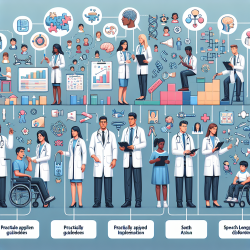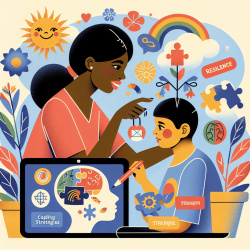Understanding Specific Learning Disorders
Specific Learning Disorders (SLDs) are neurodevelopmental disorders affecting 3%–10% of children. They are characterized by significant difficulties in reading, writing, and arithmetic that are not solely explained by intellectual disabilities, inadequate schooling, or other external factors.Key Recommendations from the Guidelines
The guidelines provide a comprehensive framework for the assessment and management of SLDs. Here are some critical recommendations:1. Comprehensive Assessment
- Conduct a detailed clinical evaluation, including history-taking and examination.
- Use standardized psychometric tests to assess cognitive and academic abilities.
- Consider the child's language background, socio-cultural context, and educational history.
2. Individualized Educational Plans (IEPs)
- Develop IEPs tailored to the child's specific needs and strengths.
- Incorporate accommodations such as extended time for tests, use of assistive technology, and modified assignments.
- Implement evidence-based remedial education strategies, focusing on phonological awareness, decoding skills, and mathematical concepts.
3. Multidisciplinary Approach
- Collaborate with a multidisciplinary team, including psychologists, special educators, occupational therapists, and speech-language pathologists.
- Engage parents and teachers in the intervention process to ensure consistency and support across settings.
Implementing the Guidelines in Practice
Practitioners can enhance their skills by integrating these guidelines into their clinical practice. Here are some steps to consider:
- Stay informed about the latest research and best practices in SLD assessment and management.
- Use data-driven decision-making to tailor interventions to each child's unique profile.
- Continuously monitor and adjust interventions based on the child's progress and feedback from the multidisciplinary team.
Encouraging Further Research
While the guidelines provide a robust framework, there is always room for further research. Practitioners are encouraged to:
- Participate in professional development opportunities to stay current with emerging research.
- Engage in collaborative research projects to contribute to the evidence base for SLD interventions.
- Share findings and best practices with colleagues to promote a culture of continuous improvement.
By implementing these guidelines and engaging in ongoing research, practitioners can make a significant impact on the lives of children with SLDs, helping them achieve their full potential.
To read the original research paper, please follow this link: Clinical Practice Guidelines on Assessment and Management of Specific Learning Disorders.










